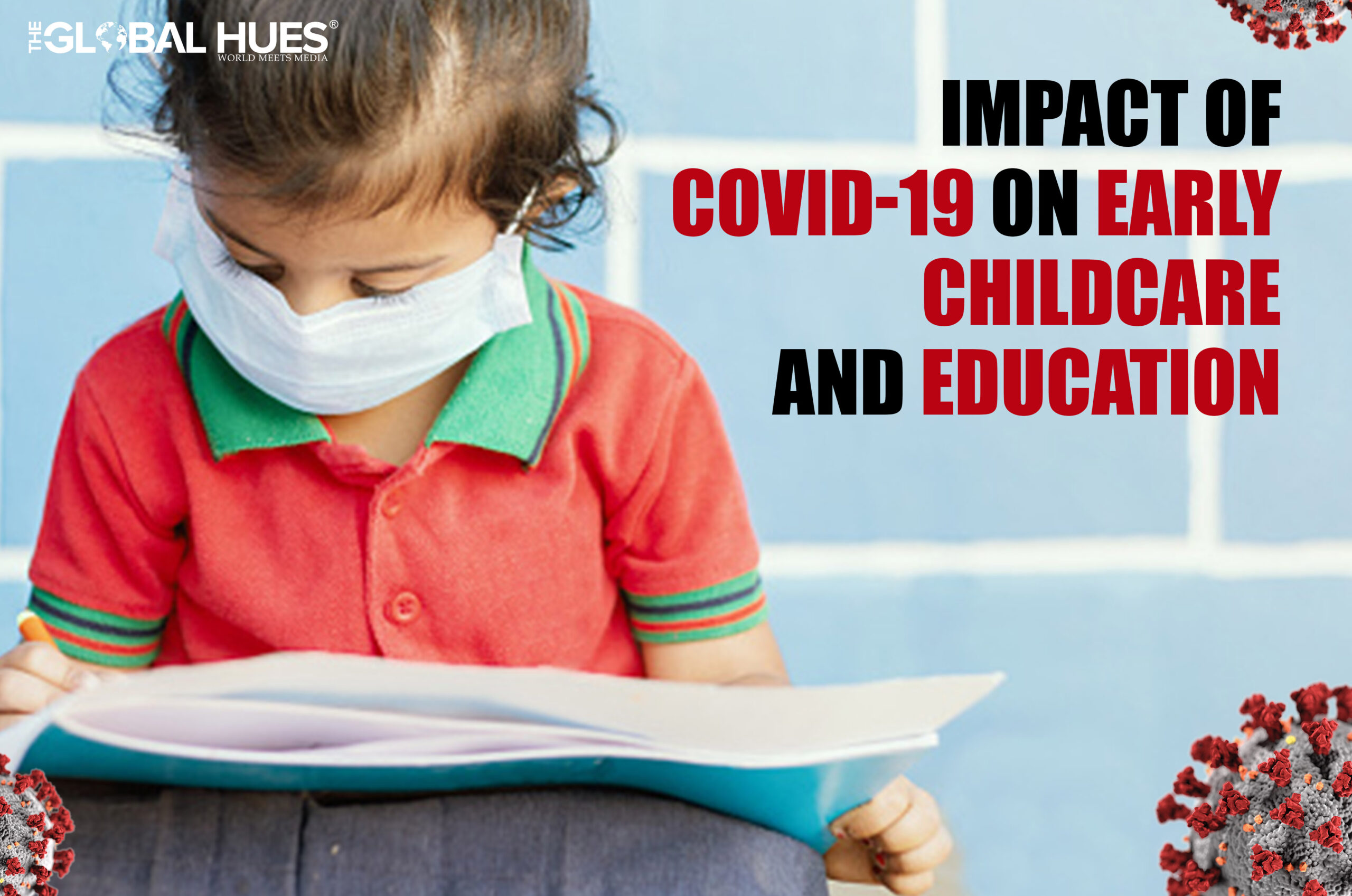“Our task should be to help children communicate and express themselves with the world using all their ability, courage, and languages to defeat the obstacles of the pandemic”
Children are not the face of this pandemic but they are at the risk of becoming its biggest victims, this crisis has a profound effect on their well-being. As we know in the early years, a child’s brain has the potential to create more than a million brain connections every second, these moments are unrepeatable opportunities to carve a child’s brain. Science states effective or positive early childhood development happens when children are nurtured, stimulated, cared for, protected or they play, learn, and have a nutritious diet that creates maximum functioning potential in the brain.
At times of crisis like this, the basic supports are being disrupted and the focus should be on rebalance and the combination of co-interventions. The continuity of child-centered services has to be prioritized, young children need early learning, responsive feeding, basic immunization, newborn maternal childcare, and community-based child care.
Adversity on healthy brain development
With changing times we are understanding the importance of supporting healthy brain development and especially in the face of adversity, there is no other effective way to promote lifelong health during the earliest and important constructive years of development.
Before the pandemic started, studies have shown that about a quarter of a billion children in low and middle-income countries have been unable to meet their full developmental potential through no fault of their own or their families; now more than ever our attention is towards the environment in which children live, play, learn, interact to support healthy growth. Not just cognitive development but physical health, socio-emotional health, education, achievement, and the brain in terms of executive functioning.
The families who are experiencing stress are having enormous effects on their children that will have lifelong consequences. The health and well-being of young children are inextricably tied to the abilities, health, and well-being of adults who care for them, buffer them from adversity and provide a well-organized caregiving environment in which healthful progress can unfold.
The pre-existing medical conditions that are imposing the highest risk like obesity, metabolic syndrome, heart disease, diabetes; all these adult medical disorders are related to greater distress early in life. Studies show that young children today who are not physically ill but whose families are experiencing enormous pressures are becoming incubators for the increased prevalence of many of these chronic diseases later in life.
Social-emotional impact on children
Many theories talk about social development in children, the first concept is called the Social Learning theory, which implies that children learn their behavior by looking at adults, peers and they emulate their behavior. This is particularly crucial for infants and toddlers who are discovering things like emotions and expressions for the first time. Kids are growing up in an environment where they are not allowed any kind of social interactions and with masks as a necessity, it is difficult for them to recognize and learn about emotions normally.
The second concept of social development is called Behavioral Development which talks about how children develop socially by constantly getting feedback on their behavior whether it is positive or negative feedback. This includes timeout, rewards, and other such things that happen at schools or daycares. In the current situation, children have to stay at home all day and play by themselves, because of which feedbacks are missing and they are incapable of learning about right and wrong, or how the behavior impacts their environment.

Image: Urban Child Institute
Development techniques
Self Regulation
Self-regulation is crucial because the current situation is underpinning all learning, children are unable to learn, read, make friends or learn how to behave in a group of peers. The executive function includes various ways of self-regulation that are affected by brain development due to parental practices, language, and stressful events.
What can be done?
- Storytelling
- Pretend Play
- Exercise and Yoga
Emotional Competence
Some children don’t feel comfortable in expressing their emotions but the right support from their parents, caregivers, or educators will make them comfortable in sharing what they feel. Temperament, cognitive development, and environmental effects affect emotional competence.
What can be done?
- Offering comfort and reassurance when distressed or providing access to comfort objects.
- Letting him/her see how a parent or caregiver feels or teaching strategies to deal with emotions.
- Staying calm and avoiding blaming or punishing is the expression of emotions.
- Reading stories about emotions emphasizes the manifestation of emotions or links the emotions to the cause and the solution.
Prosocial Behavior
It can be defined as a set of behavior that positively influences the perception of others, it is the social skill to adjust to social and voluntarily issued behavior for the benefit of others. The purpose is to build positive sociometric status, engage in positive relationships with peers, and maintain motivation in children with more demanding behavior.
What can be done?
- Discussing the harmful effects of transgressions for the victim.
- Investing in a positive relationship.
- Explaining the strength of a positive group climate
Peer Relations
The purpose is to support harmonious global development and offering opportunities to learn social norms and acquisition of social skills related to self-control. The promotion of social competence through the implementation of social skills programs is associated with positive peer relationships that are sustained over time.
What can be done?
- Positive reinforcement will bring the best in an invested relationship.
- Providing positive attention when a goal is achieved.
Learning through play
Redefining play and reimagining learning makes children’s lives better, ensuring the fundamental value of play is understood, embraced, and acted upon. Learning through play endeavors has five characteristics- joyful, actively engaging, iterative, meaningful, and socially interactive. All five are not necessary at the same time but a playful mindset is fostered when these characteristics are present in an activity; these characteristics support children’s holistic development and future skills that are necessary for success in a changing world.
Also Read:
- How Akshar Foundation Is Revolutionising Education And Sustainability
- A Growth Chart: Scanning India’s Education Sector From 1947 To 2023
- On The Other Side Of Education Technology
- New Education Policy Simplified
- Affordable And Accessible Quality Education
- Digital Learning: A New Era Of Education
- NEP 2020: India Changes Education Policy After Years




